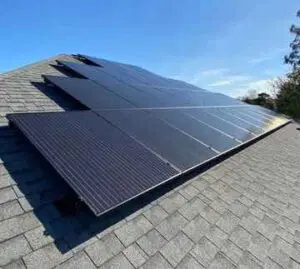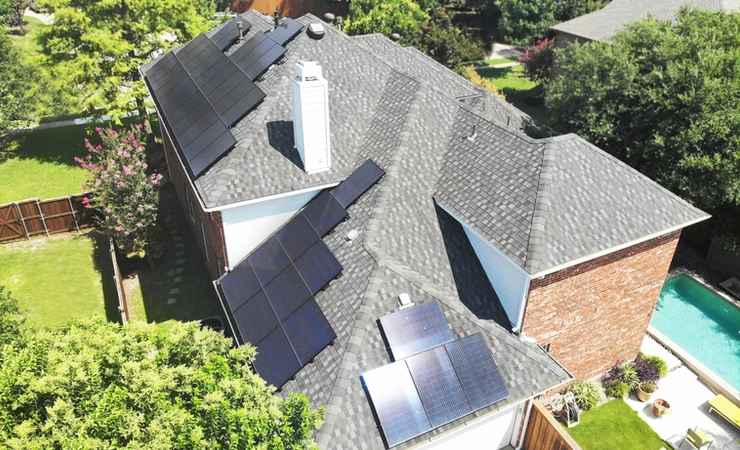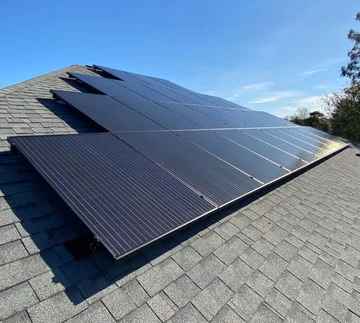
The Office of Energy Efficiency and Renewable Energy says that a solar energy system will likely increase your home’s value, and that buyers across the country have been willing to pay a premium of approximately $15,000 for a home with an average-sized solar array.
Some people value solar, but it is on a case-by-case basis and the reason for that is because in many cases, homeowners don’t actually own the solar systems installed in their homes. Meaning the seller may have purchased the equipment with a loan. This would create a lien on the house. This can make buyers shy away from homes with solar because they don’t want to enter into that kind of arrangement.
Are Buyers Looking for Homes with Solar Panels?
The National Renewable Energy Laboratory cites a study in the Appraisal Journal, which shows that home value increases $20 for every $1 reduction in annual utility bills. In other words, a solar energy system that saves $400 per year would add a value of $8,000 to your home. However, that added value is not so cut-and-dried. Because some buyers think of solar as a major plus while others view it as a downfall, it’s hard to say for sure how solar systems impact housing prices.
According to Energy.gov and studies by Berkeley Lab, solar panels are seen as home upgrades, similar to a renovated kitchen or finished basement. Which means potential home buyers are willing to pay more for a home that has solar panels.
Having an independent source of energy is an attractive feature to home buyers. More than 80% of home buyers say that they value energy efficiency when buying a home. Across the United States, homes with solar panel systems sold for an average of 4.1% more when compared to similar non-solar properties in 2018, according to research by Zillow. On a median-valued home, that’s an additional $9,274. That may be more than half the cost of your solar panel installation.

Factors That Influence the Value-Add of Solar Panels
According to Ecowatch, there are a number of factors that influence the value-add of solar panels. Some of the most prominent include:
- Geographic location: Different communities experience different electrical costs (and higher electrical costs result in greater value from your solar panels). Additionally, geography can influence the amount of sun exposure you get, as well as the social benefits of installing solar power.
- Local solar installation prices: Another geographic factor is the cost of getting a new system in your area. If a buyer would save money by purchasing a home with a system already installed, it will make your home that much more valuable.
- System output: As you can see from the chart above, a larger system with more energy generation will provide more added value.
- System age: If you have an older solar system, you’ll need to account for depreciation. Older systems won’t add that much value to your home when you sell it, as there’s a higher chance the buyer will need to do repairs or replace parts sooner.
- System replacement value: Along the same lines as system age, how expensive or difficult parts of your system would be to replace affects the added value of the system overall.
Other Considerations
While rapidly gaining in popularity, solar won’t be attractive to every prospective homebuyer. Some buyers may not like the appearance of solar panels on a house, some may have concerns about repairs and maintenance, or some may hesitate about making a long-term commitment to solar.
At the end of the day, there’s a good chance that a solar electricity system will add value to your home — as long as you can find the right buyer. Regardless, solar panels will save you money on your electric bill, and they’re good for the environment, too.

